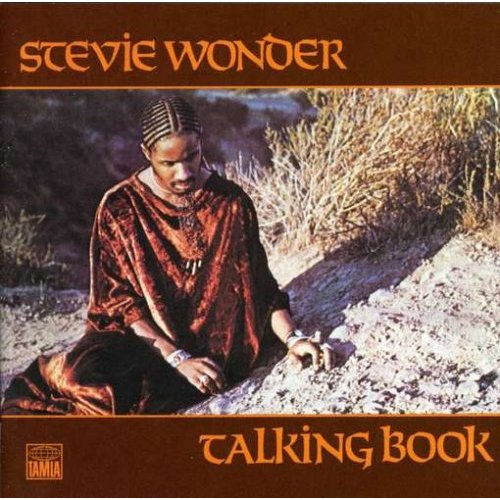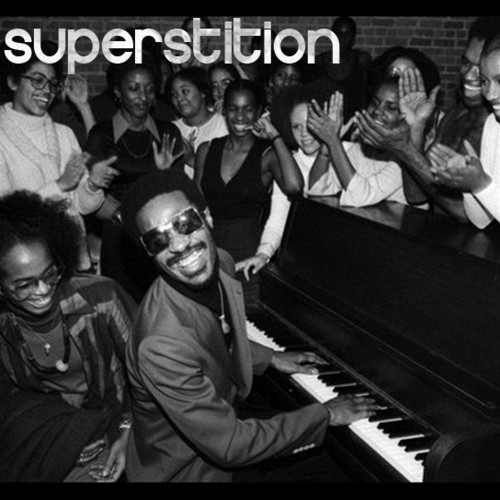| Happy birthday: Stevie Wonder (born May 13, 1950) (read more)
Do you know, it’s funny, but I never thought of being blind as a disadvantage, and I never thought of being black as a disadvantage. — |
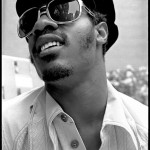 |
| Donald Dunn passed away in 2012 – 2 year ago (read more)
As the bassist for Booker T. & the MG’s, Donald “Duck” Dunn became, like James Jamerson at Motown, the man who provided a groove for an entire generation to dance to. In Dunn’s case it was the legendary Memphis record label Stax/Volt, where he laid down basslines for soul stars such as Otis Redding, Wilson Pickett, and Albert King, helping to create one of the largest bodies of soul and R&B music that exists. |
 |
| “Daddy-O” Dewey Phillips (May 13, 1926 – September 28, 1968) was one of rock ‘n’ roll’s pioneering disk jockeys, along the lines of Cleveland’s Alan Freed, before Freed came along. |  |
| Ian Ernest Gilmore “Gil” Evans (né Green) (May 13, 1912 – March 20, 1988) was a jazz pianist, arranger, composer and bandleader, active in the United States. He played an important role in the development of cool jazz, modal jazz, free jazz and jazz fusion, and collaborated extensively with Miles Davis. |  |
| Chesney Henry “Chet” Baker, Jr. (December 23, 1929 – May 13, 1988) was an American jazz trumpeter, flugelhornist and vocalist. |  |
| James Robert Wills (March 6, 1905 – May 13, 1975), better known as Bob Wills, was an American Western swing musician, songwriter, and bandleader. Considered by music authorities as the co-founder of Western swing, he was universally known as the King of Western Swing. | 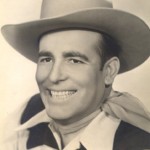 |
Spotify Playlist – May 13
|
|
Tag Archives: Stevie Wonder
Video of the day: Stevie Wonder with The Rolling Stones Uptight and Satisfaction

“Stevie Wonder is second fiddle to no one.”
– The New York Post
The Rolling Stones American Tour 1972, often referred to as the S.T.P. Tour (for Stones Touring Party), was a much-publicized and much-written-about concert tour of The United States and Canada in June and July 1972 by The Rolling Stones. Rock critic Dave Marsh would later write that the tour was “part of rock and roll legend” and one of the “benchmarks of an era.”
Stevie Wonder was the support act for the tour.
Continue reading Video of the day: Stevie Wonder with The Rolling Stones Uptight and Satisfaction
Today: Stevie Wonder released “Talking Book” in 1972 – 41 years ago
The artist breaks through and takes control, though not in that order. Suddenly he’s writing better ballads than he used to choose, and not at any sacrifice of his endearing natural bathos (if you have doubts about “Sunshine of My Life,” try “Blame It on the Sun”). “Maybe Your Baby” and “Big Brother” continue his wild multi-voice experiments but come in out of left field. And “Superstition” translates his way of knowledge into hard-headed, hard-rocking political analysis.
~Robert Christgau
From Wikipedia:
| Released | October 28, 1972 |
|---|---|
| Recorded | 1972 |
| Genre | Soul, funk |
| Length | 43:31 |
| Label | Tamla |
| Producer | Stevie Wonder, Robert Margouleff,Malcolm Cecil |
Talking Book is the fifteenth album by Stevie Wonder, released on October 28, 1972. A signal recording of his “classic period”, in this one he “hit his stride.” The album’s first track, “You Are the Sunshine of My Life”, earned Wonder his first Grammy Award, for Best Male Pop Vocal Performance.
Superstition live on Sesame Street:
Sandwiched between the release of Music of My Mind and Innervisions, Talking Book saw Wonder enjoying more artistic freedom from Motown. Guest appearances include Jeff Beck, Ray Parker, Jr., David Sanborn, and Buzz Feiten. The sound of the album is sharply defined by Wonder’s keyboard work, especially with the synthesizers he incorporated, giving a funky edge to tracks like “Maybe Your Baby”. His use of the Hohner clavinet model C on “Superstition” is widely regarded as one of the definitive tracks featuring the instrument. His swinging clavinet and harmonica embellishments on “Big Brother”, though, defy categorization.
Reception:
Released after Wonder toured with the Rolling Stones in 1972, Talking Book became an immediate hit. The popular appeal of the recording helped destroy the myth that R&B artists were incapable of creating music that could be appreciated by rock audiences, and marked a unique period for R&B artists (especially Motown artists).
- Talking Book peaked at #3 on the Pop Albums chart, and became the first album for Wonder to top the Top R&B Albums chart where it remained for three weeks.
- Wonder won three awards for Talking Book at the 1974 Grammys: Best Male Pop Vocal Performance for “You Are the Sunshine of My Life”, and both Best Male R&B Vocal Performance and Best R&B Song for “Superstition”.
- Incidentally, at the same ceremony, Wonder’s next album, Innervisions, won Album of the Year and Talking Book’s producers Malcolm Cecil and Robert Margouleff won the Best Engineered Album, Non-Classical award for their work on that album.
- In 2003, the album was ranked number 90 on Rolling Stone magazine’s list of the 500 greatest albums of all time.
You are The Sunshine of My Life – Rainbow Theatre in London. Feb 1974:
Songs
- “You Are the Sunshine of My Life” 2:58
- “Maybe Your Baby” 6:51
- “You and I (We Can Conquer the World)” 4:38
- “Tuesday Heartbreak” 3:02
- “You’ve Got It Bad Girl” (Wonder, Yvonne Wright) 4:59
- “Superstition” 4:26
- “Big Brother” 3:34
- “Blame It on the Sun” (Wonder, Syreeta Wright) 3:26
- “Looking for Another Pure Love” (Wonder, Syreeta Wright) 4:43
- “I Believe (When I Fall in Love It Will Be Forever)” (Wonder, Yvonne Wright)
Album of the day – Talking Book (1972):
From allmusic.com – John Bush:
After releasing two “head” records during 1970-71, Stevie Wonder expanded his compositional palate with 1972’s Talking Book to include societal ills as well as tender love songs, and so recorded the first smash album of his career. What had been hinted at on the intriguing project Music of My Mind was here focused into a laser beam of tight songwriting, warm electronic arrangements, and ebullient performances — altogether the most realistic vision of musical personality ever put to wax, beginning with a disarmingly simple love song, “You Are the Sunshine of My Life” (but of course, it’s only the composition that’s simple). Stevie’s not always singing a tender ballad here — in fact, he flits from contentment to mistrust to promise to heartbreak within the course of the first four songs — but he never fails to render each song in the most vivid colors. In stark contrast to his early songs, which were clever but often relied on the Motown template of romantic metaphor, with Talking Book it became clear Stevie Wonder was beginning to speak his mind and use personal history for material (just as Marvin Gaye had with the social protest of 1971’s What’s Going On). … read more over @ allmusic.com
Other October 28:
Continue reading Today: Stevie Wonder released “Talking Book” in 1972 – 41 years ago
Today: Donald Dunn passed away in 2012 – 1 year ago
As the bassist for Booker T. & the MG’s, Donald “Duck” Dunn became, like James Jamerson at Motown, the man who provided a groove for an entire generation to dance to. In Dunn’s case it was the legendary Memphis record label Stax/Volt, where he laid down basslines for soul stars such as Otis Redding, Wilson Pickett, and Albert King, helping to create one of the largest bodies of soul and R&B music that exists.
~Steve Kurutz (allmusic.com)
Short intro:
Booker T & the MG’s – green onions:
From Wikipedia:
| Birth name | Donald Dunn |
|---|---|
| Also known as | Duck |
| Born | November 24, 1941 Memphis, Tennessee, U.S. |
| Died | May 13, 2012 (aged 70) Tokyo, Japan |
| Genres | Rock, soul, rhythm and blues |
| Occupations | Songwriter, producer, actor |
| Instruments | Bass guitar |
| Years active | 1960–2012 |
| Associated acts | Otis Redding, Booker T & the MG’s, Albert King, Mar-Keys,The Blues Brothers, Sam and Dave |
| Website | duckdunn.com |
Donald “Duck” Dunn (November 24, 1941 – May 13, 2012) was an American bass guitarist, session musician, record producer, and songwriter. Dunn was notable for his 1960s recordings with Booker T. & the M.G.’s and as a session bassist for Stax Records, which specialized in blues and gospel-infused southern soul which became known as Memphis Soul. At Stax, Dunn played on thousands of records including hits by Otis Redding, Sam & Dave, Rufus Thomas, Carla Thomas, William Bell, Eddie Floyd, Johnnie Taylor, Albert King, and many others. Dunn also performed on recordings with The Blues Brothers, Muddy Waters, Freddie King, Isaac Hayes, Levon Helm, Neil Young, Elvis Presley, Jerry Lee Lewis, Eric Clapton, Tom Petty, Creedence Clearwater Revival, Wilson Pickett, Guy Sebastian, Rod Stewart, Bob Dylan, Roy Buchanan, Steely Dan, Tinsley Ellis and Arthur Conley.
Booker T. & The MG’s – Time Is Tight (Live, 1970):
Dunn played himself in the 1980 feature The Blues Brothers, where he famously uttered the line, “We had a band powerful enough to turn goat piss into gasoline!”
Awards:
- In 1992, Dunn was inducted into The Rock and Roll Hall of Fame as a member of Booker T & the MG’s.
- In 2007 Dunn and several Booker T & the MG’s members (Lewie Steinberg, Booker T. Jones, Steve Cropper, and Barbara Jackson, the widow of Al Jackson) were given a “Lifetime Achievement” Grammy award for their contributions to popular music.
Playlist of the day:
Other November 24:
Continue reading Today: Donald Dunn passed away in 2012 – 1 year ago
Today: Stevie Wonder released “Talking Book” in 1972 – 40 years ago
The artist breaks through and takes control, though not in that order. Suddenly he’s writing better ballads than he used to choose, and not at any sacrifice of his endearing natural bathos (if you have doubts about “Sunshine of My Life,” try “Blame It on the Sun”). “Maybe Your Baby” and “Big Brother” continue his wild multi-voice experiments but come in out of left field. And “Superstition” translates his way of knowledge into hard-headed, hard-rocking political analysis.
~Robert Christgau
From Wikipedia:
| Released | October 28, 1972 |
|---|---|
| Recorded | 1972 |
| Genre | Soul, funk |
| Length | 43:31 |
| Label | Tamla |
| Producer | Stevie Wonder, Robert Margouleff,Malcolm Cecil |
Talking Book is the fifteenth album by Stevie Wonder, released on October 28, 1972. A signal recording of his “classic period”, in this one he “hit his stride.” The album’s first track, “You Are the Sunshine of My Life”, earned Wonder his first Grammy Award, for Best Male Pop Vocal Performance.
Superstition live on Sesame Street:
Sandwiched between the release of Music of My Mind and Innervisions, Talking Book saw Wonder enjoying more artistic freedom from Motown. Guest appearances include Jeff Beck, Ray Parker, Jr., David Sanborn, and Buzz Feiten. The sound of the album is sharply defined by Wonder’s keyboard work, especially with the synthesizers he incorporated, giving a funky edge to tracks like “Maybe Your Baby”. His use of the Hohner clavinet model C on “Superstition” is widely regarded as one of the definitive tracks featuring the instrument. His swinging clavinet and harmonica embellishments on “Big Brother”, though, defy categorization.

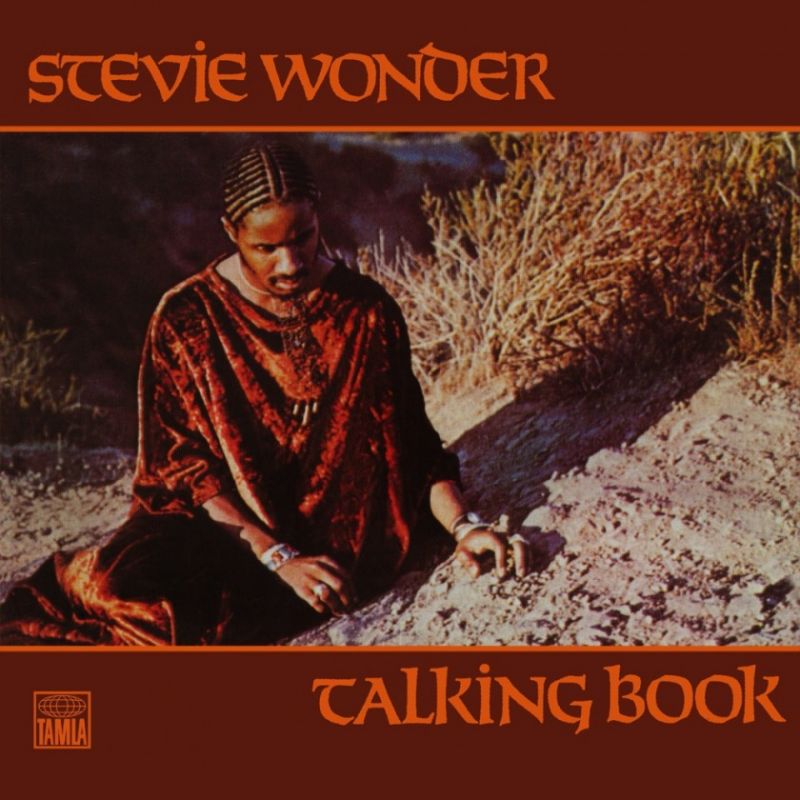
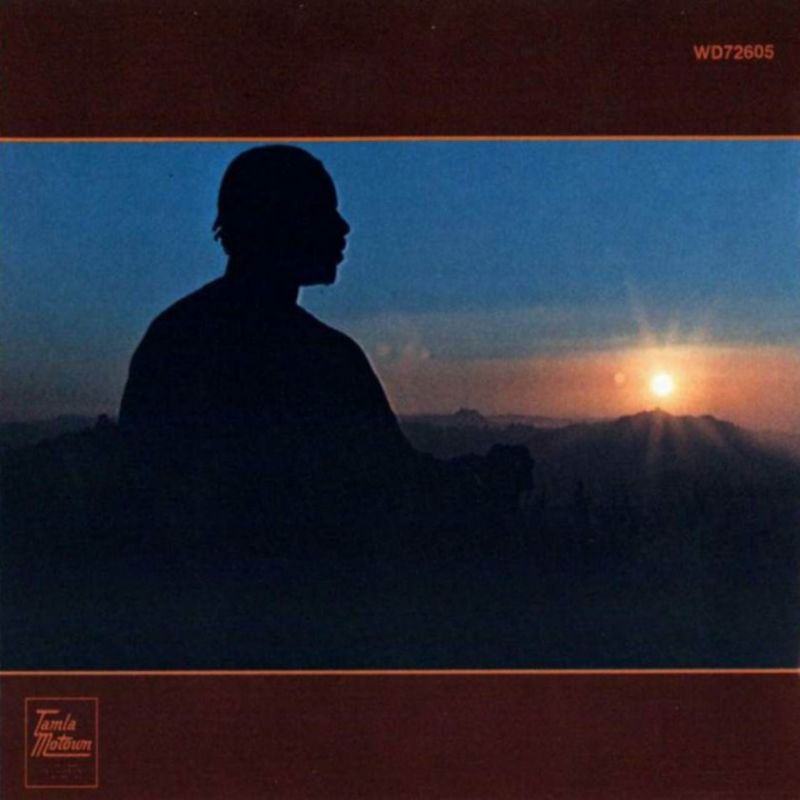

![donald_dunn_rip[1]](https://alldylan.com/wp-content/uploads/2012/11/donald_dunn_rip1.jpg)
